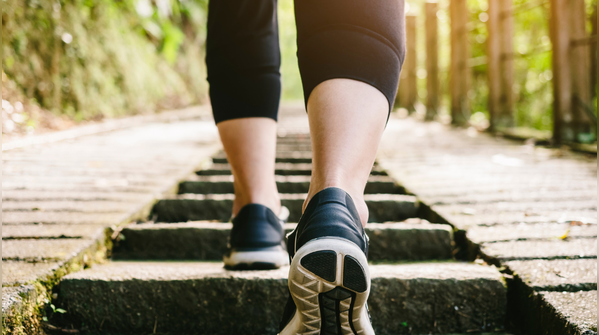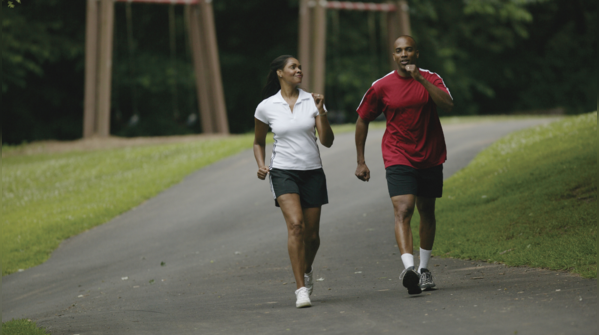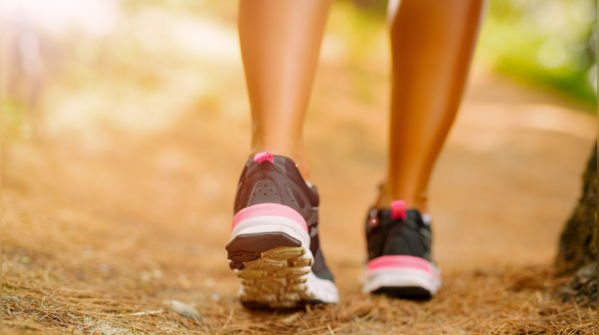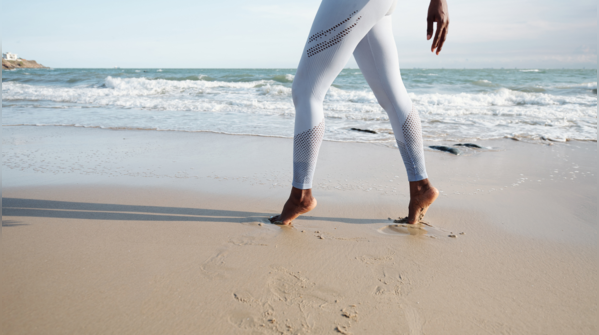- News
- lifestyle
- health-fitness
- fitness
- Best time to walk: When and how to walk for the best results
Best time to walk: When and how to walk for the best results

The right time to walk for better results
Walking is one of the easiest and most effective forms of exercise. But did you know that the time of day you walk can impact the benefits you receive? While walking at any time is great for health, choosing the right time can enhance its effects on metabolism, digestion, and overall well-being. Here's what we need to know about the best time to walk and how to make the most out of this simple activity.

Morning walk: A great way to start the day
Walking in the morning is often recommended for those looking to boost their energy levels and metabolism. Morning walks help wake up the body, improve mood, and enhance focus for the day ahead. Exposure to early sunlight also supports vitamin D production, which is essential for bone health and immunity.
Anyone can prevent cancer by following the 6 step MEDSRX formula claims top cancer doctor
Walking on an empty stomach (fasted walking) may help in better fat burning, making it an excellent choice for those aiming for weight loss. The fresh air in the morning also promotes better lung function and mental clarity.
Best for: Weight loss, energy boost, and mental clarity.

Evening walk: A stress buster after a long day
For those who struggle to find time in the morning, an evening walk can be just as beneficial. Walking in the evening helps the body relax after a long day, reduces stress, and improves digestion after meals. It can also help regulate blood sugar levels, making it a good option for people with diabetes.
Walking in the evening may aid in better sleep as it helps the body release tension and promotes relaxation. However, it's best to avoid intense walking too close to bedtime, as it might interfere with sleep.
Best for: Stress relief, digestion, and better sleep.

Walking after meals: Does it really help?
Many people wonder if walking after meals is a good idea. Research suggests that a short walk (10–15 minutes) after eating can aid digestion, regulate blood sugar levels, and prevent bloating. It helps the stomach process food more efficiently and prevents sluggishness after meals.
Walking immediately after a heavy meal might not be comfortable for everyone. A light stroll is recommended rather than a brisk walk, allowing the body to digest food properly without putting too much strain on the stomach.
Best for: Digestion and blood sugar control.

Afternoon walk: The underrated time for fitness
Afternoon walks are not as popular, but they can be incredibly beneficial. The body's temperature peaks in the afternoon, which can enhance muscle performance and endurance. Walking at this time can be particularly effective for improving cardiovascular health and burning calories.
A midday walk can break long sitting hours, especially for those with desk jobs. It improves blood circulation and prevents stiffness in the body. Walking outside in the afternoon also provides exposure to natural light, which can help regulate the body’s sleep-wake cycle.
Best for: Muscle strength, energy boost, and breaking sedentary time.

How to maximise the benefits of walking?
Regardless of the time chosen, the way one walks also plays a crucial role in reaping the best results. Here are a few tips to enhance the benefits of walking:
Walk with an upright posture, keeping the shoulders relaxed and the arms swinging naturally.
A brisk walk (over 4kmph) is ideal for heart health, but a slower pace can still provide benefits.
Drink enough water before and after walking to prevent dehydration.
Supportive footwear prevents joint pain and improves walking efficiency.
Consistency is key. Aim for at least 30 minutes of walking daily for noticeable health benefits.(Image: CANVA)









